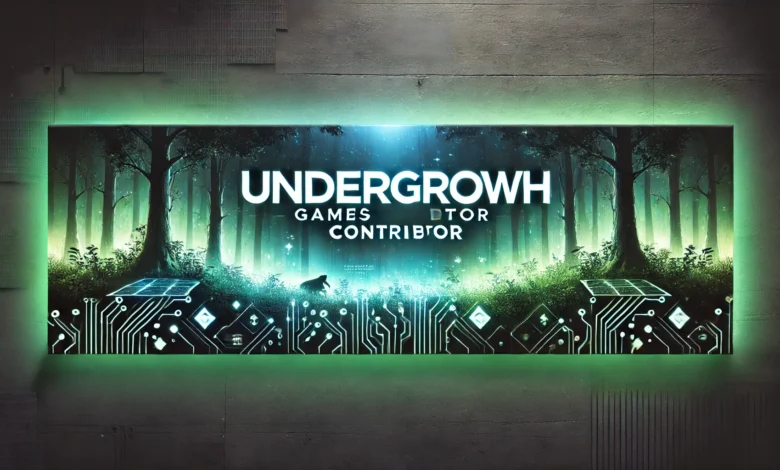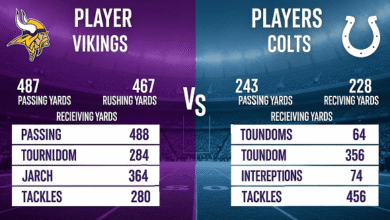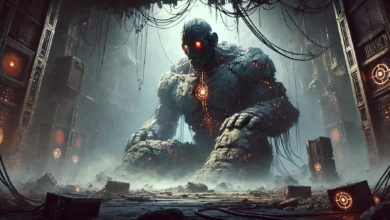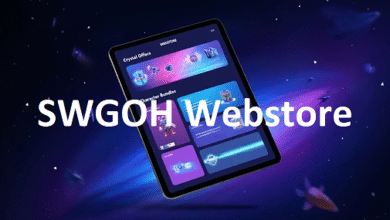UndergrowthGames Contributor: Everything You Need to Know

Introduction to UndergrowthGames Contributor
When it comes to the world of indie game development, “UndergrowthGames contributor” is a term that has started gaining attention. While it might sound like a very specific niche, it actually represents something broader: individuals or groups that contribute to creative projects under the UndergrowthGames umbrella. These contributors are often responsible for shaping ideas, testing concepts, or even developing unique features that become the backbone of independent games.
Being a contributor doesn’t just mean coding or designing. It can include writing lore, creating assets, brainstorming storylines, or even engaging in community-building efforts that keep fans invested. Indie development relies heavily on collaboration, and contributors play a major role in making sure projects succeed. In fact, in the gaming industry, especially for small studios, contributors often make the difference between a dream idea and a fully realized product.
The term itself has been used in forums, social platforms, and collaborative spaces where people are credited for their participation. That makes understanding the role of an “UndergrowthGames contributor” essential, especially if you’re interested in game development or simply want to know how such communities operate.
Who Are the Contributors?
Contributors in the UndergrowthGames ecosystem come from all walks of life. Some are professional developers who dedicate their free time to passion projects, while others are hobbyists who just want to see their creativity come to life. They can be artists, writers, sound designers, coders, or even people who give feedback during alpha and beta testing.
What sets these contributors apart is their shared passion for indie gaming. Unlike large studios, where tasks are divided into strict job roles, indie projects usually require contributors to wear multiple hats. One day, a contributor might be working on character designs, and the next, they might be balancing gameplay mechanics or proofreading dialogue. This fluidity not only makes the role more challenging but also incredibly rewarding.
The sense of ownership is another defining factor. Contributors often feel deeply connected to the games they help build. Their names may not always appear in the credits alongside lead developers, but the work they put in becomes the backbone of the project. In many cases, their ideas and contributions become the defining elements that make a game stand out from the crowd.
The Importance of Contributors in Indie Game Development
Indie games UndergrowthGames Contributor thrive on creativity and community input, and contributors are at the heart of this ecosystem. Without a strong base of contributors, many indie titles would either take years to finish or never make it past the prototype stage. That’s because large studios have resources, but indie teams rely heavily on collaboration and shared expertise.
Contributors also help keep projects cost-effective. Hiring full-time professionals for every task is simply not possible for many small studios, so having volunteers or part-time collaborators ensures that the project can progress steadily without burning out the budget. This kind of teamwork allows small developers to bring ambitious ideas to life without compromising on quality.
Most importantly, contributors bring diverse perspectives. In a world where games are increasingly being judged not only on gameplay but also on storytelling, inclusivity, and design, having contributors from different backgrounds ensures that the final product appeals to a broader audience. A single developer might have a strong idea, but contributors help refine it into something polished and market-ready.
Types of Contributions Made by UndergrowthGames Contributors
There are several types of contributions one might make as part of the UndergrowthGames community. Each plays an important role in the overall development cycle, and together, they form the backbone of successful projects.
- Creative Contributions: UndergrowthGames ContributorThis includes character design, story writing, dialogue crafting, and world-building. Contributors in this category help create immersive environments that draw players in and keep them engaged.
- Technical Contributions: Coding, debugging, and performance optimization are crucial for making a game playable. Contributors with a technical background ensure that the creative ideas actually translate into smooth, enjoyable gameplay.
- Testing and Feedback: Some contributors act as early testers. They identify bugs, suggest improvements, and provide real-world feedback. This process helps developers catch issues before launch and refine gameplay mechanics.
- Community Engagement: Not every contributor works behind the scenes. Some take on roles like managing forums, creating fan content, or moderating discussions. This helps keep the game’s community active and supportive.
Together, these contributions form a well-rounded ecosystem where every participant, no matter their skill set, has something valuable to offer.
Challenges Faced by Contributors
While the role of a contributor is exciting and rewarding, it does come with its fair share of challenges. One of the biggest issues is recognition UndergrowthGames Contributor. Many contributors work long hours behind the scenes, but their names may not always be featured in official credits. This can sometimes lead to frustration, especially for those hoping to build a portfolio or career in the industry.
Another challenge is balancing personal time with project commitments. Since many contributors are not full-time employees, they often juggle their game work alongside jobs, studies, or personal responsibilities. This makes it difficult to meet deadlines or consistently deliver high-quality contributions.
There’s also the issue of creative differences. Indie projects thrive on ideas, but when multiple contributors bring their own visions to the table, it can sometimes lead to conflict. Managing these differences requires strong leadership and open communication within the team. Despite these hurdles, contributors continue to play a vital role because the rewards—both personal and professional—outweigh the challenges.
The Rewards of Being a Contributor
For many, the biggest reward of being an UndergrowthGames contributor is the satisfaction of seeing their work come to life in a game. It’s one thing to dream about creating a character or storyline, but it’s an entirely different feeling to see players interact with something you helped build. This sense of achievement is often what drives contributors to keep going, even when faced with challenges.
Another major benefit is skill development. Contributors gain hands-on experience in areas like coding, design, or project management. This can be a powerful addition to their portfolio, opening doors to future opportunities in the gaming industry UndergrowthGames Contributor. For many aspiring professionals, contributing to indie games becomes a stepping stone to bigger projects.
Finally, there’s the community aspect. Contributors often form lifelong friendships and connections within the gaming industry. Being part of a team where everyone shares the same passion creates a sense of belonging and purpose. This collaborative environment not only builds great games but also strengthens the contributor’s professional and personal network.
How to Become an UndergrowthGames Contributor
If you’re interested in joining as a contributor, the process is surprisingly straightforward. The first step is identifying your skills. Are you a writer, a coder, a designer, or simply someone who loves to test games and provide feedback? Once you know your strengths, you can reach out to UndergrowthGames communities through forums, social platforms, or even official project announcements.
Networking is another key step. Many contributors start by casually interacting with the team or other community members before formally joining a project. Showing genuine interest and offering small contributions at first can build trust and credibility.
Finally, be prepared to commit. While most contributions are voluntary or part-time, consistency is valued highly. Teams prefer contributors who can stick around and provide steady input rather than those who disappear after one or two tasks. With dedication, you can not only contribute but also grow alongside the project.
The Future of Contributors in Indie Development
Looking ahead, the role of contributors in indie gaming will only become more significant UndergrowthGames Contributor. As technology advances and development tools become more accessible, more people will have the chance to join in as contributors. This democratization of game development means that creativity will no longer be limited to big studios.
We can expect contributors to have a bigger say in shaping the future of indie games. Crowdsourcing ideas, collaborating across continents, and integrating community-driven content are all trends that will continue to grow. This will not only empower contributors but also create richer, more diverse games for players worldwide.
At the end of the day, being an UndergrowthGames contributor isn’t just about helping build a game—it’s about being part of a movement that celebrates creativity, collaboration, and the power of community-driven development.
Conclusion
The world of UndergrowthGames contributors is vast, dynamic, and full of opportunities. From creative input to technical support and community engagement, contributors make it possible for indie projects to thrive in an industry dominated by massive studios. While challenges like recognition and workload balance exist, the rewards—skill-building, community connections UndergrowthGames Contributor, and the joy of creation—are more than worth it.
As indie development continues to expand, contributors will remain at its heart, shaping the future of gaming in ways that are innovative, inclusive, and inspiring UndergrowthGames Contributor. If you’ve ever thought about getting involved, now might be the perfect time to step in and become part of something truly meaningful.



